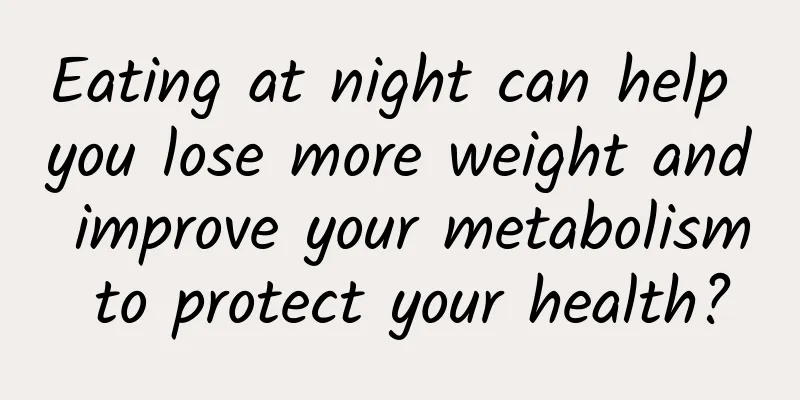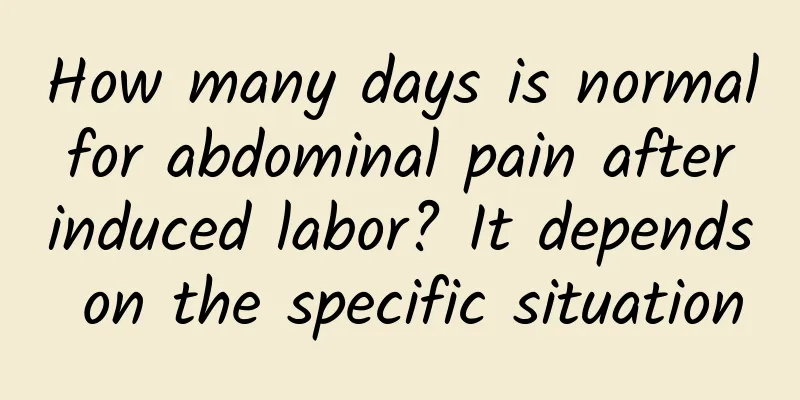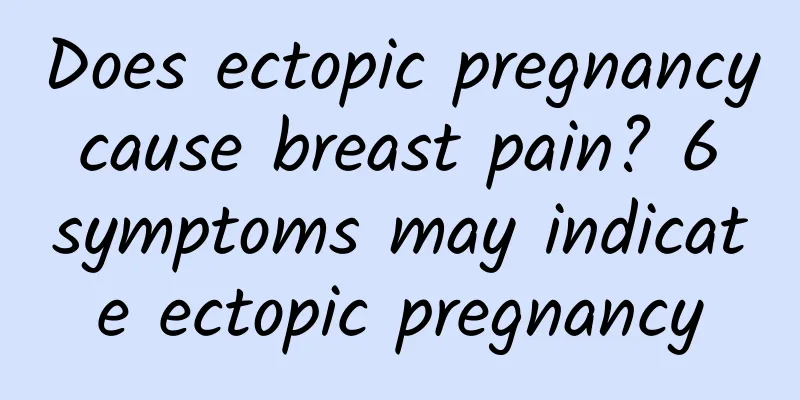Eating at night can help you lose more weight and improve your metabolism to protect your health?

|
Israeli scholars have found that concentrating starchy food intake at night will not make you fat, but will help you lose more weight, maintain a sense of fullness, and improve many blood biochemical indicators. There is a saying in the West: "Eat breakfast like a king, lunch like a commoner, and dinner like a beggar." This eating pattern is said to help control weight and prevent people from gaining weight. Interestingly, a 2007 study published in the Singapore Medical Journal completely contradicted this claim. What the Muslim fasting month tells us In the Islamic calendar, the ninth month of each year is designated as Ramadan. During this month, Muslims observe a strict fast from sunrise to sunset and cannot even drink water. Most people eat a light breakfast before sunrise and a full meal after sunset. To understand the effects of fasting on health, researchers at Jordan's Hashemite University recruited 57 female Muslims to observe changes in their bodies before and after Ramadan. According to the research results, the total calorie intake, nutrient ratio and activity level of these 57 women were no different before and after Ramadan - to put it bluntly: the calories not consumed during the day were made up at night. But after Ramadan, the average weight of these women dropped from 57.5 kg to 56.9 kg, body fat dropped from 24.9% to 24.5%, and BMI dropped from 22.2 to 22, and most of the weight change came from the reduction of body fat. The experience of the Muslim fasting month of Ramadan shows that without changing your eating and exercise habits at all, simply concentrating your calorie intake at night can help reduce body fat. Burn more fat by eating at night? ! In a study conducted by the U.S. Department of Agriculture, scientists divided 10 women into two groups: one group of women ate a hearty breakfast and lunch every day, while the other group ate a particularly hearty dinner and midnight snack. The two groups ate exactly the same food, only the time of day they ate was different. After 3 months, scientists discovered that the late-eating group lost 3.27 kg and the early-eating group lost 3.9 kg, but their body fat decreased by 2.52%, while that of the early-eating group only decreased by 1.83%. This means that the late-eating group had a more vigorous fat metabolism rate and also lost more fat tissue! Can eating midnight snacks actually help burn fat? Israeli scholars conducted a six-month human experiment in 2011. They recruited 100 obese policemen (both men and women) with a BMI of over 30 and asked them to start a six-month diet plan. The fat policemen were divided into two groups, both of which were fed low-calorie, low-fat weight loss meals. The difference between the two groups is that the "control group" can eat carbohydrates at all three meals, while the "late meal group" is only allowed to eat starch and carbohydrates in the evening. During the starch-free meals, participants were still allowed to eat meat, vegetables, nuts, and low-fat dairy products, as well as drink calorie-free beverages such as tea, water, and coffee. (Representative starchy foods: pasta, bread, corn, beans, potatoes, sweet potatoes, etc.) After 6 months, the following findings were made: the late-eating group lost 11.7% of their body weight, 11.7% of their BMI, 10.5% of their waist circumference, and 18.1% of their body fat. As for the early eating group, their weight decreased by 9.96%, BMI by 9.68%, waist circumference by 8.8%, and body fat by 14.1%, which were slightly worse than those of the late eating group. The evening meal group, which moved starch intake to the evening, not only lost more weight and maintained fullness throughout the day, but also improved multiple metabolic function indicators including insulin, which is equivalent to "satisfying multiple wishes at once." It is not clear why eating starch at night can help lose weight. Researchers speculate that eating at night changes the secretion pattern of hormones such as leptin, which reduces appetite during the day and makes dieting and weight loss more successful. Personally, I speculate that choosing to eat carbohydrates at night is quite similar to "intermittent fasting", which concentrates the day's calories into a shorter period of time, and has been shown in many clinical trials to have more benefits than simply dieting. However, the subjects of this Israeli study were relatively obese (BMI over 30) and used a low-calorie, low-fat diet to lose weight, so its conclusions may not apply to everyone. I would also like to remind everyone that this experiment is to "move" starch to be eaten at night, and the total amount is still controlled. It does not mean that eating more starch at night will help you lose weight! So, why do people say that eating midnight snacks (or skipping breakfast) will make you fat? Because observational studies have successfully misled everyone. Think back to when you were studying for a final exam, preparing for a client presentation, playing a video game, or burning the midnight oil for any reason. What changes did your body experience? Do you have a big appetite, love to eat junk food, and your weight is increasing rapidly? There is an inseparable relationship between staying up late, stress, late-night snacks, obesity, and skipping breakfast. People who are used to eating late-night snacks are more likely to have unhealthy living habits. A survey conducted by Swedish scholar Hallberg L on local teenagers found that teenagers who skip breakfast consume more calories, more sugar, fewer vitamins and minerals between meals, and have a higher rate of smoking and drinking. Little girls who skip breakfast may even have their menstrual period come a year earlier than those who have three normal meals. So let me test you, which of the following conclusions can we draw from the Swedish study?
I believe all readers have answered correctly, right? Baron KG, a neurologist at Northwestern University in the United States, also verified this concept: people who sleep late eat more midnight snacks (not surprising at all...) and have more unhealthy habits. "Midnight snack sets" are sold as a whole set. People who often eat midnight snacks usually go to bed later, sleep less, are under a lot of stress, skip breakfast, and love to eat junk food... With so many unhealthy lifestyle habits tied together, we only single out "eating before bedtime" and say it is the culprit of obesity, which is really unfair. 【One minute reminder from Dr. Scott】 Although past observational studies have suggested that eating at night is associated with obesity, I believe this conclusion is problematic. Eating late at night often reflects a poor lifestyle: disordered eating habits, too little sleep, and the stress that comes with working overtime. Besides, late night snacks are rarely "healthy", right? When was the last time you had fruit salad for a midnight snack? However, I am not encouraging every reader to skip breakfast and eat a large meal at night. Everyone's body is unique and reacts differently to different diets. Although there are a variety of articles on the market that teach people when to eat to coordinate the functioning of the internal organs, from the perspective of Western medicine, there is currently no evidence to show what the best time for humans to eat is. My suggestions are:
If your busy schedule makes eating breakfast a hassle, skipping it might not do you much harm. Don't worry about becoming bloated. But if you feel groggy and groggy after skipping breakfast, it might not be a good idea to stick with it. Tailoring to local conditions is the principle of smart and healthy eating. This article is from Sancai Culture's "Dr. Scott's One-Minute Weight Loss Classroom" |
<<: Oats are mixed with the pesticide carbofuran! You can eat these instead...
>>: Break through the weight loss plateau! Keep in mind the 6 principles to improve basal metabolism
Recommend
Can I get pregnant naturally after my endometrial tuberculosis is cured?
Can you get pregnant naturally after endometrial ...
People with irregular menstruation will have phlegm obstruction
People who suffer from irregular menstruation wil...
Why is my menstrual period color weird?
Why is my menstrual period color weird? The color...
What are the traditional Chinese medicine treatments for adenomyosis?
What is the Traditional Chinese Medicine treatmen...
What is the blood HCG value for ectopic pregnancy?
What is the blood hcg value for ectopic pregnancy...
Do you know the symptoms of ovarian cysts?
What are the symptoms of ovarian cysts? Ovarian t...
Can cervical warts be cured?
There are some women in life who do not have uncl...
Left ovarian cyst with slight pain
The slight pain of the left ovarian cyst may be c...
Causes of pituitary amenorrhea
Pituitary amenorrhea is caused by organic lesions...
What are the symptoms of chronic adnexitis?
Chronic adnexitis is a common women's disease...
Clinical symptoms of cervical hypertrophy
Among the many gynecological diseases, cervical h...
Explain the symptoms of severe cervical erosion
Clinically, the treatment of severe cervical eros...
What are the two points that can be summarized as the causes of cervical hypertrophy?
Female patients will only find out the cause of c...
How much does it cost to treat functional uterine bleeding?
Gynecologists at the hospital said that a normal ...
Here are the examination items for irregular menstruation
What are the examinations for irregular menstruat...









